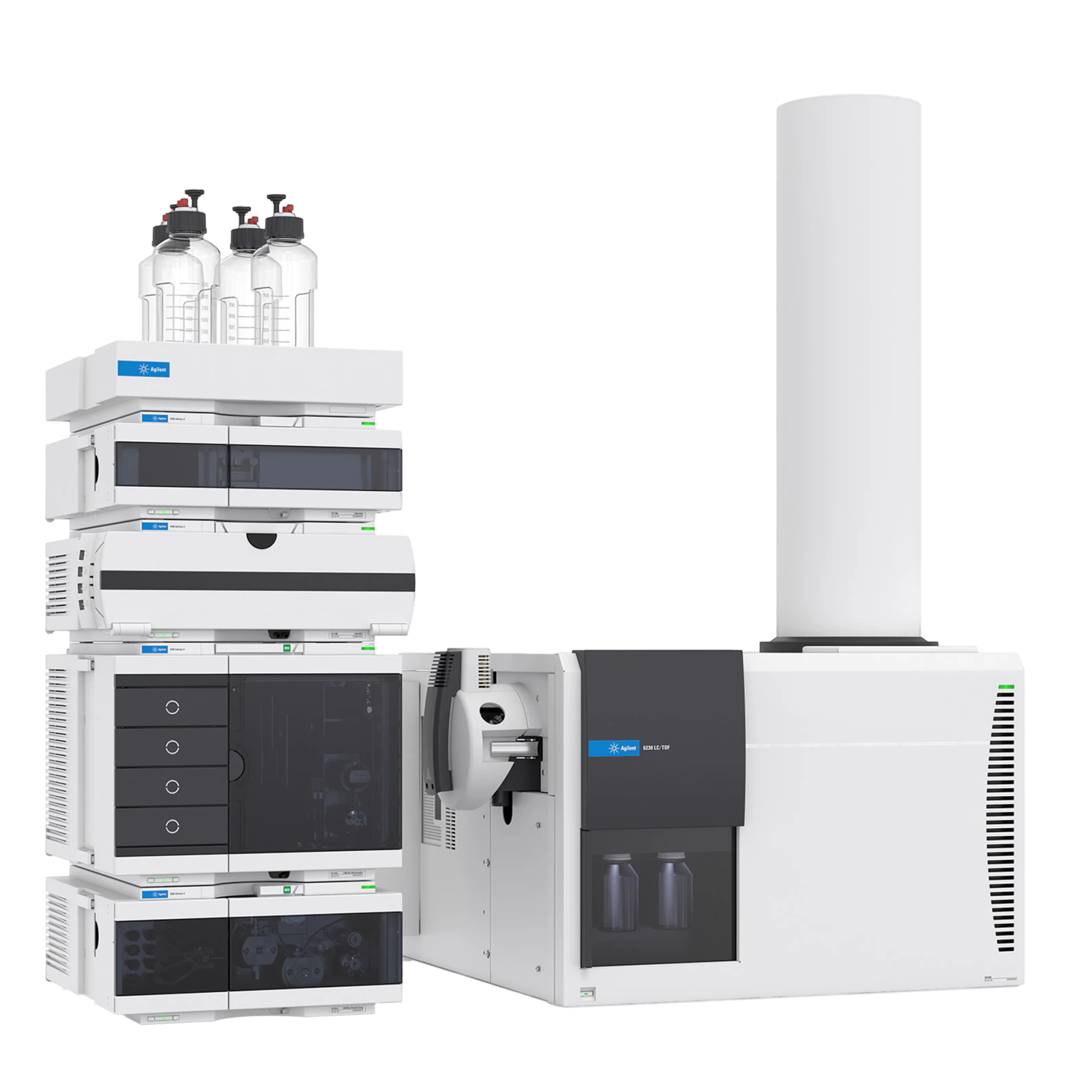Mass spectrometry
Mass spectrometry is a device that produces ions from atoms, molecules, radicals, or mixtures thereof, and then separates and identifies these ions according to their mass/charge (m/e) ratios.
A mass spectrometer consists of the following parts:
- The section where the sample is fed to the device
- Ionization part
- Mass selective quadrupole part
- Detector
- Software and computer
Areas of use of Mass Spectrometry
- Determination of structures of organic and biochemical molecules;
- Determination of molar masses of peptides, proteins and oligonucleotides;
- Identification of separated substances in thin layer and paper chromatography;
- Determination of amino acid sequence in polypeptide and protein samples;
- Identification of substances separated by chromatography and capillary electrophoresis;
- Determination of toxic substances and metabolites of these toxic substances in blood, urine and mouth water;
- Monitoring of gases in the patient's breath during the operation;
- Determining the ages of archaeological samples;
- Doping control in race horses and Olympic athletes;
- Analysis of aerosol forming particles;
- Determination of pesticide residues in food;
- Monitoring of volatile organic substances in water sources, etc
The main advantages of Mass Spectrometry:
- Having high sensitivity;
- The presence of versatile fields of application;
- Being able to give quick results;
Mass spectrometry (MS) is a powerful analytical technique that measures the mass-to-charge ratio (m/z) of ions. It offers unparalleled insights into the composition and structure of molecules. When combined with gas chromatography (GC-MS), it allows for the separation and identification of complex mixtures.
- Structural Analysis in Chemistry: Elucidate the structure of complex molecules using mass spectrometry.
- Biomolecular Characterization: Accurately determine molecular weights and sequences of proteins and peptides with mass spectrometers.
- Environmental and Forensics: Detect trace contaminants and identify substances with precision using automated mass spectrometry techniques.
- The Versatility of Mass Spectrometry: From pharmaceutical research to environmental monitoring, mass spectrometry offers wide-ranging applications.
- Choosing the Right Mass Spectrometer: Explore factors like resolution, sensitivity, and ionization methods to find the ideal mass spectrometer or mass spectrometre for your needs.
Contact us to learn more about our mass spectrometry solutions.
